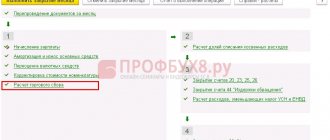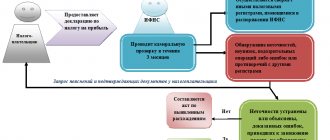Source: Magazine “Income Tax: Accounting for Income and Expenses”
The scope of banking services is quite extensive. With rare exceptions, credit institutions provide services on a paid basis. According to tax regulations, fees for services of this kind can be taken into account as part of both other and non-operating expenses. Meanwhile, the legislation has not established any clear criteria for distinguishing incurred expenses between other and non-operating. Consequently, taxpayers need to make an independent decision on the procedure for reflecting costs associated with paying for banking services for profit tax purposes. What should you consider when making this decision? The answer to this and other questions is in this article.
Types of banking services
Before analyzing the procedure for recognizing expenses for banking services, let us explain what banking operations taxpayers have to pay for. The list of operations carried out by credit institutions is given in Art. 5 of the Law on Banks and Banking Activities . These include, for example:
- opening and maintaining accounts;
- transfers of funds on behalf of account holders;
- collection of funds (bills, payment and settlement documents) and cash services;
- purchase and sale of foreign currency in cash and non-cash form;
- issuance of bank guarantees.
In addition to the listed operations, the bank has the right, in particular:
- issue guarantees for third parties providing for the fulfillment of obligations in monetary form;
- provide for rent special premises, safes or cells for storing documents and valuables.
But these are no longer banking operations, but transactions ( Article 5 of the Law on Banks and Banking Activities ).
The list of services provided by a credit institution to a specific legal entity is determined by the relevant agreement. It determines the cost of banking services (including interest rates on loans and deposits), the timing of their implementation, the responsibility of the parties for violation of obligations, as well as the procedure for termination and other essential terms of the contract provided for by civil law ( Article 30 of the Law on Banks and Banking Activities ) .
Fees for unreasonably protested payments
According to ConfOP, this group of commissions is not a service and is included in the concept of “account servicing”. On this basis, such commissions can be challenged. These commissions are taken by Novikombank (1500 rubles), SMP Bank (1000 rubles), Moscow Industrial Bank (1500 rubles).
Carrying out activities related to protesting transactions: MTS Bank (450 rubles per transaction). Recall of payments and other investigations on behalf of the account owner: Renaissance Credit (500 rubles). Review of documents provided by the client in response to written requests about the nature and economic meaning of the operations being carried out: “Renaissance Credit” (2000 rubles).
Emergency cash withdrawal service from a card or card replacement. These commissions are legal. However, this raises the question of the validity of pricing. Fees may be exorbitant and may therefore be prohibitive for consumers. Issuance of funds if the card is lost outside the Russian Federation: MTS Bank (7,650 rubles). Emergency replacement of a card if it is lost outside the Russian Federation: Promsvyazbank (8300 rubles), MTS Bank (6150 rubles).
pixabay.com
Tax rules
The Tax Code provides two possible options for reflecting costs associated with banking services in tax accounting.
Option one – pp. 25 clause 1 art. 264 of the Tax Code of the Russian Federation . In accordance with this norm, other expenses associated with production and sales include expenses for postal, telephone, telegraph and other similar services, expenses for payment for communication services, computer centers and banks, including expenses for fax and satellite services communications, e-mail, and information systems.
Option two – pp. 15 clause 1 art. 265 Tax Code of the Russian Federation . This article defines the list of non-operating expenses taken into account when taxing profits. It also includes expenses for bank services, including services related to the sale of foreign currency when collecting taxes, fees, penalties and fines in the manner prescribed by Art. 46 of the Tax Code of the Russian Federation, with the installation and operation of electronic document management systems between the bank and clients, including client-bank systems.
So, expenses associated with paying for bank services can equally be attributed to other expenses associated with production and sales, and to non-operating expenses. At the same time, none of the mentioned tax norms specifies exactly what banking services (according to the terminology of the Law on Banks and Banking Activities - operations or transactions) are meant.
The mentioned norms also contain no restrictions regarding the list of types of services provided by banks to be taken into account for tax purposes. This circumstance was drawn attention to in letters of the Ministry of Finance of Russia dated January 26, 2006 No. 03-03-04/1/64 , Federal Tax Service of Moscow dated December 14, 2007 No. 20-12/119669 , Resolution of the Federal Antimonopoly Service dated November 24, 2008 No. F09- 8606/08-С3 .
This circumstance provides taxpayers, on the one hand, with a certain freedom of action in terms of establishing the procedure for recognizing such costs when taxing profits. After all, paragraph 4 of Art. 252 of the Tax Code of the Russian Federation states: if costs incurred can equally be attributed to several groups of expenses at the same time, the taxpayer has the right to independently determine in the accounting policy the procedure for reflecting these costs. On the other hand, it entails additional tax risks of disagreements with regulatory authorities. After all, the latter may have a different opinion from the taxpayer regarding the accounting procedure for the analyzed expenses.
Let's consider the features of recognizing the most common costs associated with paying for banking services.
Expense recognition date
Organizations that determine income and expenses using the accrual method recognize expenses for payment of banking services (bank commissions) either on the date of settlement in accordance with the terms of concluded agreements, or on the date of presentation by the bank of documents serving as the basis for settlements, or on the last day of the reporting (tax) ) period. This is indicated in subparagraph 3 of paragraph 7 of Article 272 of the Tax Code of the Russian Federation.
The Tax Code does not establish special conditions for reflecting such expenses on one or another of the specified dates. This means that the organization has the right to independently choose on what date it will recognize bank commissions in tax accounting, and consolidate its choice in its accounting policy for tax purposes. However, you don't have to do this. After all, the norms of Chapter 25 of the Tax Code of the Russian Federation do not contain requirements for the need to select and consolidate in the accounting policy of the organization any of the listed methods.
Let's say an organization uses the cash method . She will be able to take into account expenses in the form of bank commissions when calculating income tax only after they have actually been paid (clause 3 of Article 273 of the Tax Code of the Russian Federation).
Costs for opening a current account
Such expenses, first of all, include the fee for opening a bank account, which is an independent paid banking service.
When deciding whether to recognize this type of expense as part of other or non-operating expenses, one should take into account the nature of the transactions that the taxpayer plans to carry out using this account. At the same time, at the stage of opening a current account, it is often difficult to determine the nature of the operations that will be carried out in the future, and therefore it is safer to consider the fee for opening a bank account as part of non-operating expenses. Indirect confirmation of this is the aforementioned Letter No. 20-12/119669 , in which the capital’s tax authorities recommend that expenses for banking services be classified as other expenses only if such expenses are directly related to production and sales.
Note: the taxpayer can recognize the expenses in question for profit tax purposes even if there is no income from business activities in the tax (reporting) period, which is typical for newly created legal entities.
The Ministry of Finance has repeatedly expressed the opinion that any expenses incurred by an organization from the moment of its state registration are recognized as expenses, provided that they were incurred to carry out activities aimed at generating income ( letters dated August 26, 2013 No. 03-03-06/1/ 34810 , dated 09/20/2011 No. 03-03-06/1/578 , dated 04/21/2010 No. 03-03-06/1/279 , dated 04/10/2008 No. 03-03-06/1/265 ). The agency believes that in this case, what is important is the taxpayer’s intention to obtain an economic effect as a result of real business activity, and not its actual result. That is, the expenses of a business entity must be correlated with the nature of its activities, and not with the receipt of profit ( Letter dated August 16, 2013 No. 03-03-06/1/33408 ). Therefore, the lack of income in any period cannot be considered as a basis for recognizing expenses as economically unjustified ( resolution of the Tenth Arbitration Court of Appeal dated 09/06/2011 No. A41-12815/11 , FAS MO dated 04/23/2008 No. KA-A40/3195-08 ) .
In addition to these costs, when opening a current account, the taxpayer bears the costs of certifying the authenticity of signatures on bank cards of persons entitled to manage the funds in the account.
These expenses are due to paragraphs. “d” clause 4.1 of the Bank of Russia Instruction No. 28-I dated September 14, 2006 “On opening and closing bank accounts, deposit accounts” (hereinafter referred to as the Instruction ), according to which, in order to open an account, a legal entity must submit to the bank in addition other documents, a card with sample signatures and seal impressions. The authenticity of the signatures of persons entitled to the first or second signature can be certified on the card either by a notary or by the bank itself ( clause 7.4 of the Instructions ).
If the card is issued by an authorized person of the bank (in the manner established by clause 7.13 of the Instructions ), a certain fee is charged to the legal entity. Although this operation is carried out by a credit institution, it is not listed in the list of banking operations. Therefore, recognize this remuneration as expenses on the basis of paragraphs. 25 clause 1 art. 264 or paragraphs. 15 clause 1 art. 265 of the Tax Code of the Russian Federation , in the author’s opinion, is risky.
We believe that such costs can be taken into account as other expenses associated with production and sales ( clause 49, clause 1, article 264 of the Tax Code of the Russian Federation ), or other justified non-operating expenses ( clause 20, clause 1, article 265 of the Tax Code of the Russian Federation ).
The economic justification for such expenses is obvious, since the bank will not open a current account without issuing a card.
Cash services and cash collection
Cash settlement services are perhaps the main type of banking services. This is indicated by the fact that a banking service agreement is often referred to as a cash settlement service agreement. Thus, within the framework of settlement and cash services, a credit institution can provide the following types of services:
- maintaining records of funds in the account of a legal entity;
- crediting funds received from counterparties or other persons by bank transfer;
- execution of instructions from the organization to transfer funds to third parties;
- acceptance and issue of cash.
To recognize the costs of settlement and cash services as tax expenses, it is necessary that the terms of the agreement determine the types of services that the bank will provide, the amount of remuneration due, as well as the timing and procedure for its payment.
As a rule, the bank debits fees for cash management services without acceptance on the last working day of the month. The exception is the fee for cash transactions - it is charged immediately after the transaction.
The legality of including the costs in question in non-operating expenses was analyzed by the supreme arbitrators in the Determination of the Supreme Arbitration Court of the Russian Federation dated January 30, 2009 No. VAS-408/09 . According to the case materials, the bank formalized the write-off of funds for settlement and cash services using memorial orders in accordance with the terms of additional agreements to the bank account agreement. Based on these orders, the taxpayer took into account the disputed amounts as part of non-operating expenses in those tax periods when they were written off by the bank from his current account. The lower courts and the panel of judges of the Supreme Arbitration Court considered such actions of the company to be lawful.
Regarding collection , the following must be clarified. According to clauses 2 and 3 of Directive No. 3210-U, the company must hand over all excess funds to a bank or organization included in the Bank of Russia system, which is vested with the right to collect and transport cash, carry out operations for its receipt and processing, for crediting to the bank account. check.
The organization's expenses for cash collection are determined by the need to fulfill this obligation, which means they are economically justified. The FAS MO arbitrators also believe that for profit tax purposes, it is possible to take into account the costs of paying for bank services for the issuance and delivery of funds necessary for the company to pay dividends ( Resolution No. KA-A40-3913-11 ).
Thus, expenses for collection of funds in relation to amounts related to production and sales should be taken into account as part of other expenses on the basis of paragraphs. 25 clause 1 art. 264 Tax Code of the Russian Federation . If cash is not directly related to the production process, the cost of cash collection services must be included in non-operating expenses in accordance with paragraphs. 15 clause 1 art. 265 Tax Code of the Russian Federation .
RKO for legal entities and individual entrepreneurs
By law, entrepreneurs are not required to open a current account, unless the amount of settlements with other individual entrepreneurs and LLCs does not exceed 100,000 rubles under one agreement. If you enter into transactions for large amounts, you are required by law to open an account account.
Pay attention to this nuance here. If you rent a premises and enter into an agreement with the landlord for a period of, for example, 12 months, then you must meet 100,000 rubles based on the rent for the entire rental period, and not per month.
Having a bank account greatly simplifies settlements with counterparties. In addition, not all legal entities agree to cooperate with individual entrepreneurs without a current account, since this threatens to block the account. In addition, an entrepreneur who has a current account does not receive as much attention from the tax authorities.
In general, it is difficult to imagine modern business without interaction with banking organizations. Cash settlement services and additional services for legal entities and individual entrepreneurs, which you can receive as part of banking services, make the life of an entrepreneur much easier, allow you to automate many business processes and provide an environment for comfortable development.
For example, maintaining records using the online accounting service provided by banks, obtaining legal and accounting support. Take, for example, the same salary project, when you don’t need to go to the bank, withdraw money from your account, pay a commission, and then worry about their safety during transportation. It is enough to send the salary slip to the bank, which will subsequently transfer the money to the cards of the employees.
RKO for LLC: where is it better to open a current account →
From the current account you can pay taxes and make contributions to the Compulsory Medical Insurance Fund, Social Security, and Pension Fund. It also provides reliable storage of proceeds and allows you to perform currency exchange transactions. It is worth considering that when connecting to RKO, you can rent a safe.
It is also worth considering that without a current account you will not be able to open electronic wallets (Yandex.Money and WebMoney) or accept payments by bank cards from your clients. In addition, proceeds in excess of the cash limit must be deposited into the current account every 3 days.
How to calculate cash limit
Each company has its own limit, which is calculated based on the volume of revenue.
Calculation formula: L = p / rp × ds , where:
L – estimated limit amount in rubles; P – the volume of cash receipts for the billing period (firms that are just starting to conduct business activities indicate the amount of expected revenue) in rubles; RP – the billing period for which the volume of revenue is determined (can be no more than 92 working days) in days; DS – the number of working days between the days of delivery of revenue to a financial institution (no more than 7 days, or 14 days if there is no bank in the locality in which the company operates) in days.
The result obtained will be the cash limit.
There is a fine for keeping money in the cash register in excess of the limit:
- for individual entrepreneurs and officials - 4,000-5,000 rubles;
- for legal entities - 40,000-50,000 rubles.
Attention! The cash limit is not provided only for those small businesses whose average annual turnover does not exceed 800,000 rubles and whose number of employees is 100 people.
Current account maintenance fee
Maintaining an account is a separate banking operation, for which a separate fee may be provided in accordance with the tariffs established by the bank.
In its meaning, it is not identical to the commission for executing client instructions. As a rule, the amount of such a fee is fixed and it is debited from the client’s account monthly. The organization is obliged to pay for this service even if the current account is temporarily not used by it. According to the judicial authorities, the current civil legislation does not provide for the automatic termination of a bank account agreement due to the lack of transactions on the account ( Resolutions of the Federal Antimonopoly Service of Moscow dated December 24, 2013 No. F05-14636/2013 , FAS BVO dated November 11, 2013 No. A82-10048/2012 ). However, in some cases, the bank, at its discretion, can service customer accounts free of charge.
The organization has the right to include the fee for maintaining an account as part of other or non-operating expenses ( clause 25, clause 1, article 264 , clause 15, clause 1, article 265 of the Tax Code of the Russian Federation ).
Commission on transactions of withdrawing and depositing cash through bank cash desks to accounts and deposits
The Supreme Arbitration Court has formulated signs by which one can distinguish a legal commission from an illegal one. The commission is legal if:
- is charged for a separate service that does not arise from direct obligations under the loan agreement or from obligations provided for by law;
- has independent consumer value;
- the consumer has a real opportunity to refuse the service.
Depositing funds is not an independent service, since it is impossible to use an account that has no funds. Cash withdrawals may legally be subject to a fee if the agreement stipulates this.
Commission for operations of withdrawing and depositing cash through bank cash desks to accounts and deposits in the amount of 100 to 30 thousand rubles: Gazprombank (300 rubles).
The right of the bank, without prior notice, to charge the client a commission for reimbursement of additional expenses actually incurred by him for the technical implementation of transactions (including the amount of postal, telecommunications, other unforeseen expenses, as well as commissions of intermediary banks, etc.) on the basis of a bank account agreement/ bank deposit agreement “On demand”. This commission is legal, but charging it without prior notice to the client is not, since it deprives the consumer of the opportunity to refuse the service. This commission is charged, for example, by Rosselkhozbank.
pixabay.com
Bank commissions
The use of borrowed funds (loans, lines of credit) involves the need to pay various bank fees - in particular, fees for reviewing a loan application, opening a loan account or line of credit, early repayment or extension of a loan, changing the terms of a loan agreement.
The size of the mentioned commissions can be a fixed value (set in absolute terms) or calculated. In the latter case, the commission amount is calculated as a percentage of the loan amount (or other indicator).
According to the authorities, commissions, calculated as a percentage of the amount of the loan issued, are equal to expenses in the form of interest on debt obligations and are subject to accounting in the manner established by Art. 269 Tax Code of the Russian Federation .
The Letter of the Ministry of Finance of Russia dated March 18, 2011 No. 03-03-06/1/145 states: if the commission fee (for example, for part of unused funds under an open credit line) is expressed as a percentage, expenses in the form of such remuneration should be taken into account on the basis pp. 2 p. 1 art. 265 of the Tax Code of the Russian Federation (that is, taking into account the restrictions provided for in Article 269 ).
In Letter No. 03-03-06/1/421 , the financial department made a similar conclusion regarding the fee for using a loan under overdraft conditions, calculated as a fixed percentage for the open credit limit.
In other words, financiers consider this type of commission as hidden interest on loans. A similar approach to the recognition of commissions is demonstrated by specialists from the Federal Tax Service ( Letter No. SA-4-9/9466 ).
The competent authorities make an exception only for bank commissions, established as a fixed amount in absolute value terms. Financiers allow such payments (for example, a commission for prolonging a previously concluded loan agreement) to be recognized as tax expenses in full, that is, without standardization. Officials note: these amounts can be included in other expenses on the basis of paragraphs. 25 clause 1 art. 264 of the Tax Code of the Russian Federation , subject to the provisions of paragraph 1 of Art. 252 of the Tax Code of the Russian Federation ( letters of the Ministry of Finance of Russia dated October 19, 2011 No. 03-03-06/1/675 , dated December 23, 2009 No. 03-03-06/1/824 ).
Meanwhile, not all arbitrators agree with the position of the regulatory authorities. A typical example is the Resolution of the Federal Antimonopoly Service of the Moscow Region dated December 13, 2012 No. A40-271/12-91-2 , in which the arbitrators came to the following conclusions. The fee for opening a credit line is not interest on debt obligations, regardless of the methodology for determining the amount of the service fee. The specified remuneration is paid in a lump sum and is not related to the actual time of use of borrowed funds. Such expenses are payment for bank services, therefore they are reasonably taken into account by the company as part of non-operating expenses on the basis of paragraphs. 15 clause 1 art. 265 Tax Code of the Russian Federation .
Another judicial act is the Resolution of the Federal Antimonopoly Service of the Moscow Region dated October 11, 2012 No. A40-129907/11-75-520 . Here the dispute arose regarding the commission charged by the bank for issuing the loan. Taking the side of the taxpayer, the arbitrators indicated: based on the provisions of Art. 29 of the Law on Banks and Banking Activities and Art. 819 of the Civil Code of the Russian Federation, the bank’s commission for providing a loan is a banking operation related to its provision, and does not apply to debt obligations in the sense of paragraphs. 2 p. 1 art. 269 Tax Code of the Russian Federation . In this regard, payment of a commission to the bank, regardless of the method of determining its size (in a fixed amount or as a percentage of the amount of the loan provided), is an independent payment for banking services provided, taken into account when taxing profits as part of non-operating expenses.
A similar approach was demonstrated by the FAS PO arbitrators in Resolution No. A57-22510/2007 regarding the inclusion in tax expenses of the bank’s commission for maintaining a loan account.
At the same time, readers should pay attention to the Resolution of the Federal Antimonopoly Service of the Moscow Region dated 02/04/2013 No. A40-71012/12-99-408 . The judges decided: payment for the opportunity to receive funds on the terms of a credit line in accordance with paragraph 1 of Art. 272 of the Tax Code of the Russian Federation should be recognized as part of current expenses evenly over the period provided for by the transaction for opening a credit line. Since the loan was provided for a period until December 1, 2013, the organization was lawful in accordance with paragraph 8 of Art. 272 of the Tax Code of the Russian Federation recognized the specified fee (in the amount of 0.7% of the loan amount), paid to the bank at a time in 2006, in equal installments during the period stipulated by the loan agreement.
How to choose a bank
Many entrepreneurs, especially beginners, are faced with the problem of choosing a bank to service their business. Most often they focus on the cost of services, but this is far from the only criterion that needs to be taken into account when making such a decision. Taking a serious approach to choosing the financial institution that you trust to handle your company's affairs is very important. The financial well-being of the business, its smooth operation and relationships with partners depend on this.
Business people can find a reliable partner and assistant in the bank. But if they bet on the wrong organization, they will create headaches and serious problems. Therefore, the correct choice of a bank that will serve a company or private entrepreneur is a very important point.
Main criteria for choosing a credit institution:
- Reputation and length of stay in the financial market. Visit aggregator sites where you can read ratings and reviews (Brobank is one of them).
- Large selection of tariffs and their prices. If you are a beginner entrepreneur, then a number of banks provide free services for such individual entrepreneurs. If you have been actively developing in the market for a long time, have acquired a large number of counterparties and make a large number of payments, pay attention to the availability of premium tariffs that will allow you to save on cash transactions.
- Speed of payments. An important parameter, as it can affect relationships with counterparties.
- Opening hours of the branch and operating day, as well as the distance of the bank office from your company.
- Competence of employees, availability of round-the-clock customer and technical support.
- Availability of additional services and services and their cost (acquiring, salary project, connecting an online cash register, online accounting, currency control).
- Availability of remote service (Client-Bank, Internet-Bank for remote account management and transactions), as well as the quality of the Call Center.
- Business lending terms. As a rule, banks often refuse to provide loans to small individual entrepreneurs. If you fall into this category, it is important to find out in advance whether this option is available to you. Owners of large companies planning to participate in government procurement or tenders are advised to check whether the bank issues bank guarantees.
- Possibility of opening a foreign currency account and terms of its service. Organizations working or planning to work with foreign counterparties should pay attention to this point.
Free current accounts for LLCs and individual entrepreneurs →
Also, using the website www.asv.org.ru, do not forget to check whether the banks that suit you participate in the deposit insurance program. Let us remind you that if a bank participates in this system, then if its license is revoked, you will be able to receive your money in the amount of up to 1.4 million rubles.
Payment for banks performing the functions of currency control agents
In accordance with the provisions of Federal Law No. 173-FZ , as well as taking into account Art. 421 of the Civil Code of the Russian Federation, authorized banks have the right to charge a fee for performing the functions of currency control agents from client organizations that have issued transaction passports under foreign trade contracts with these banks. At the same time, banks independently determine the amount and procedure for collecting the specified fee ( clause 3 of the Bank of Russia Information Letter dated March 31, 2005 No. 31 ).
The Ministry of Finance believes that the taxpayer can take into account the fee for performing the functions of currency control agents as part of other expenses associated with production and sales, based on paragraphs. 25 clause 1 art. 264 of the Tax Code of the Russian Federation ( letters dated 02/03/2012 No. 03-03-06/1/58 , dated 08/12/2011 No. 03-03-06/1/477 ).
Payments related to employee salary cards
Article 136 of the Labor Code of the Russian Federation allows for the payment of earnings by transfer to bank accounts specified by employees.
This method of receiving wages must be provided for in a collective or employment agreement. Meanwhile, for transferring wages to employees’ bank cards, banks charge a certain fee from the employing organization. Most often, its size is calculated as a percentage of the total amount of funds transferred to employees.
The competent authorities consider such expenses of the organization to be economically justified and do not object to their recognition for profit tax purposes. However, they did not come to a consensus as to which expenses (other or non-operating) these amounts should be taken into account.
According to the Ministry of Finance ( Letter No. 03-03-04/1/167 ), the mentioned remuneration should be classified as non-operating expenses, that is, taken into account for profit tax purposes on the basis of paragraphs. 15 clause 1 art. 265 of the Tax Code of the Russian Federation . Financiers believe: the commission for the transfer from the organization’s current account of funds intended for the payment of earnings to the open accounts of employees should be qualified as expenses for paying for banking transactions ( Letter dated July 14, 2009 No. 03-11-06/2/ 124 ).
The Federal Tax Service, on the contrary, believes that such costs should be taken into account as part of other production expenses (based on paragraph 25, paragraph 1, Article 264 of the Tax Code of the Russian Federation ), and not non-operating expenses ( Letter dated April 26, 2005 No. 02-1-08/ [email protected] ).
For our part, we consider the second position to be correct, since the payment of remuneration to the bank in this situation is conditioned by the payment of earnings, that is, directly related to the economic activities of the organization.
But controllers are unlikely to allow the organization’s payments for servicing employees’ bank cards to be taken into account when taxing profits. In the aforementioned letter from the Federal Tax Service, this account contains the following explanations: if an agreement with a bank to open and service an account using a bank card is concluded by an employee of the organization, then he is a client of the bank and at the same time the holder of the bank card. Therefore, the employer’s costs of paying for the bank’s services for the production of these cards are the costs of paying for goods for the personal consumption of employees. These expenses, in accordance with clause 29 of Art. 270 of the Tax Code of the Russian Federation should not be taken into account when determining the taxable base for income tax. Also, according to tax authorities, commission fees paid by an organization to the issuing bank for conducting transactions on the accounts of its employees using bank cards are not recognized in tax expenses, since this fee must be collected by the issuer from its clients, that is, from the employees of the organization.
How to choose a favorable tariff
Count the number of transactions
To choose the most favorable cash settlement tariff, calculate how many transactions you will make on your account during a certain period (month, six months, year). And also determine the amount of money that you will withdraw in cash or, conversely, deposit into your current account.
Client-bank
The Client-Bank system involves installing software on your PC or the computer of a director or accountant. The program allows you to make transactions on your account. You can also use it to enter into a number of agreements with some banks.
This system is much more secure than online banking as it is much more difficult to hack. But at the same time, it is less mobile, since it can only be installed on one PC.
If you nevertheless decide to use the Client-Bank system, be sure to count the number of transactions that you will carry out with its help. Also calculate how many transactions you will carry out using paper media. Tariffs for the latter may be significantly higher.
Cash withdrawal or corporate and salary cards
Withdrawing money in cash from an account is the most expensive item for many small and medium-sized businesses. Especially for those who withdraw and pay money, so to speak, “in envelopes”. The tariff for such operations is around 1-3% of the withdrawal amount. But something else is worse. Cashing out from a current account is a labor-intensive and unsafe process, for which the account may be subject to sanctions.
You can solve the problem with the help of salary and corporate cards. But in this case, you need to take into account 3 fees at once: for issuing and servicing, replenishment, cash withdrawal. But even if you add up all these fees, the amount will still be less than if you withdraw cash from your account. And if you pay with a salary or corporate card for services or purchases, there is no withdrawal fee at all. Moreover, some banks issue cashback cards that will allow you to save on purchases.
We create a table and call the bank
You have selected several banks whose service conditions suit you best. Before applying to open a current account, contact the managers and ask them a few questions regarding servicing legal entities and individual entrepreneurs. For convenience, all questions can be entered into a table.
Points that can be clarified based on the RKO parameters:
- commission for outgoing payment to another bank (paper and Client-Bank)
- commission for outgoing payment within the bank (paper and Client-Bank);
- number of free payments;
- cost of opening an account;
- account replenishment fee;
- cash withdrawal fee;
- average cost of cash settlements in a bank per month;
- cost of connecting the Client-Bank system;
- cost of servicing the Client-Bank system per month;
- checkbook cost;
- availability of additional services (acquiring, payroll project, lending, online accounting, consulting services, bank guarantees).
Questions regarding servicing salary and corporate cards:
- commission for replenishing salary project accounts;
- cost of servicing salary cards per year;
- cost of issuing a corporate card;
- the cost of withdrawing money from a corporate card from the ATM network of a bank or other banking organizations, as well as abroad;
- cost of servicing a corporate card per month.
Some information can be found on the website in the public domain, but, as a rule, this is general information for reference. Some banks provide an individual approach to determining transaction fees depending on the size of the company, field of activity, cash turnover, etc. All these nuances need to be clarified before concluding a contract. After that, compare the conditions and costs, choose the option that suits you best.






